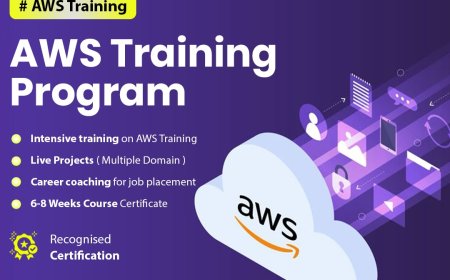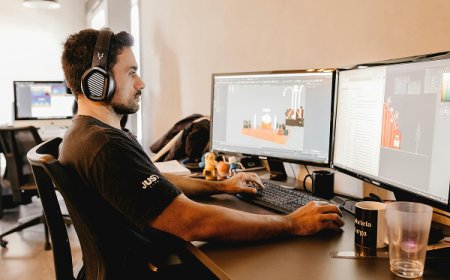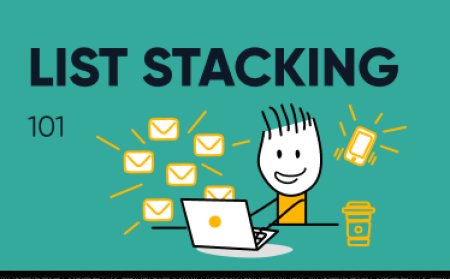How to Attend London Film Festival
How to Attend London Film Festival The London Film Festival (LFF), organized annually by the British Film Institute (BFI), is one of the most prestigious and influential film events in the world. Established in 1956, it has grown into a global platform for cinematic innovation, showcasing over 200 films from more than 70 countries each October. From groundbreaking independent features to high-prof
How to Attend London Film Festival
The London Film Festival (LFF), organized annually by the British Film Institute (BFI), is one of the most prestigious and influential film events in the world. Established in 1956, it has grown into a global platform for cinematic innovation, showcasing over 200 films from more than 70 countries each October. From groundbreaking independent features to high-profile premieres and immersive XR experiences, the festival attracts filmmakers, critics, industry professionals, and passionate cinephiles from across the globe. Attending the London Film Festival is not merely about watching moviesits about engaging with the future of storytelling, connecting with global voices, and experiencing cinema in its most dynamic and diverse form.
For first-time attendees, the scale and complexity of the event can feel overwhelming. With hundreds of screenings, Q&As, panels, and special events spread across multiple venuesincluding the BFI Southbank, Odeon Luxe Leicester Square, Vue West End, and moreknowing how to navigate the festival efficiently is essential. This guide provides a comprehensive, step-by-step roadmap to ensure you make the most of your LFF experience, whether youre a local film enthusiast or traveling from overseas. Well walk you through ticketing, scheduling, venue logistics, networking opportunities, and insider tips that separate casual attendees from true festival insiders.
By the end of this guide, youll have a clear, actionable plan to attend the London Film Festival with confidence, maximize your exposure to exceptional cinema, and immerse yourself fully in one of the most vibrant cultural events in the United Kingdom.
Step-by-Step Guide
Step 1: Understand the Festival Structure and Dates
The London Film Festival typically runs for 12 to 14 days in mid-October each year. For 2024, the festival is scheduled from October 9 to October 20. Unlike commercial film festivals that prioritize red carpet premieres, LFF is structured around curated programs, thematic strands, and audience-driven experiences. The festival is divided into several key sections: Competition (for the Sutherland and Grierson Awards), LFF Explore (immersive and experimental works), LFF Connect (industry and education events), and LFF Family (screenings for younger audiences).
Its critical to note that the festival operates on a strict schedule. Screenings are released in waves, and popular titles often sell out within minutes. Begin your planning at least three months in advance by visiting the official BFI website and subscribing to their newsletter. This ensures you receive early access announcements and priority booking windows.
Step 2: Create a BFI Account
Before you can purchase tickets or reserve seats, you must create a free BFI account. Visit bfi.org.uk and click Sign In in the top-right corner. Select Create Account and provide your full name, email address, and a secure password. Use a personal email account that you check regularly, as critical updatessuch as schedule changes, ticket release alerts, and venue updatesare sent exclusively through this channel.
Once registered, verify your email address by clicking the confirmation link sent by BFI. After verification, log in and complete your profile by adding your preferred contact preferences and accessibility needs. This step is vital if you require wheelchair access, audio description, or British Sign Language interpretation for screenings.
Step 3: Secure Your Membership (Optional but Highly Recommended)
While not mandatory, becoming a BFI Member offers significant advantages. Members receive priority booking access, exclusive discounts on tickets and merchandise, invitations to members-only events, and early access to the full programme. Membership tiers range from 45 for a basic annual pass to 150 for a premium membership that includes complimentary guest tickets and backstage access.
For serious attendees, the premium membership is a worthwhile investment. Priority access means you can book tickets before the general public, which is crucial for highly anticipated films. For example, in 2023, films like The Holdovers and The Zone of Interest sold out within 48 hours of public releasemembers had access 72 hours prior.
Step 4: Study the Programme and Build Your Schedule
The official programme is released in late August, approximately six to eight weeks before the festival begins. Its available as a downloadable PDF and an interactive online calendar on the BFI website. Each listing includes the film title, director, country of origin, runtime, screening date and time, venue, and availability of subtitles or accessibility features.
Use the programme to identify films that align with your interests. Categories include: New Directors, Documentary, World Cinema, Midnight Madness, and Special Presentations. Create a master list of your top 2030 titles. Then, cross-reference screening times to avoid overlaps. Pay close attention to films with post-screening Q&As, as these often sell out faster and provide invaluable insight into the filmmaking process.
Tip: Use a spreadsheet or digital calendar (Google Calendar, Apple Calendar) to map out your ideal schedule. Include travel time between venuesLondons public transport can be unpredictable during peak festival hours.
Step 5: Book Tickets Early and Strategically
Ticket sales open in two phases: first for BFI Members (usually in early September), then for the general public (mid-September). Never wait until the last minute. Even mid-tier films can sell out quickly, especially those featuring acclaimed directors or international stars.
To book tickets:
- Log into your BFI account.
- Go to the Whats On section and filter by date, venue, or category.
- Select your desired screening and click Book Now.
- Choose your seat (if available) or accept an assigned seat.
- Complete payment via credit/debit card or PayPal.
Each ticket is linked to your BFI account and will appear under My Bookings. Youll receive a digital ticket via email and can also access it through the BFI app. There is no need to print ticketsscreening staff scan your phone or digital pass at the entrance.
Important: You can book up to six tickets per transaction. If you want to see more than six films in one session, youll need to make additional purchases. Avoid booking tickets for multiple screenings at the same venue in rapid successionallow at least 45 minutes between showings for transit and queueing.
Step 6: Plan Your Travel and Accommodation
London is a large city, and festival venues are spread across central London. Key venues include:
- BFI Southbank (Waterloo)
- Odeon Luxe Leicester Square
- Vue West End (Covent Garden)
- Picturehouse Central (Piccadilly)
- Curzon Soho
- Empire, Leicester Square
Book accommodation as early as possible. Hotels within Zone 1 (central London) fill up months in advance. Consider staying in areas like Waterloo, Southwark, or Covent Garden for proximity to multiple venues. Alternatively, use platforms like Airbnb or Booking.com to find apartments with good transport links.
For transportation, purchase an Oyster card or use contactless payment (Apple Pay, Google Pay, or a contactless bank card) on the Tube, buses, and Overground. The London Underground is the fastest way to move between venues. Download the Citymapper appit provides real-time transit updates and walking directions between screening locations.
Step 7: Prepare for the Screening Experience
On the day of your screening, arrive at least 3045 minutes early. Even with a reserved seat, queues can form quickly, especially for popular films. Arriving early ensures you get a good seat, avoid last-minute seat reassignments, and have time to use restrooms or grab a snack.
Bring a small bag with essentials: a charged phone (for digital tickets), a light jacket (theatres are often cold), earplugs (some films have intense sound design), and a notebook if you plan to take notes during Q&As. Food and drinks are available at venue concessions, but prices are high. Consider bringing a refillable water bottlemany venues have water fountains.
Turn off your phone or set it to silent mode. Recording or photographing the film is strictly prohibited and may result in ejection from the screening. Be respectful of other attendeesloud conversations, phone use, and late arrivals disrupt the experience for everyone.
Step 8: Engage with Q&As and Events
Many screenings at LFF are followed by live Q&A sessions with directors, actors, cinematographers, or producers. These are often highlights of the festival experience. To maximize your participation:
- Arrive early to secure a seat near the front.
- Prepare a concise, thoughtful question in advance.
- Avoid clich questions like What was it like working with [actor]?instead, ask about creative decisions, cultural context, or technical challenges.
Some Q&As are streamed live on the BFI YouTube channel, so if you cant attend in person, you can still watch and participate via live chat.
In addition to screenings, LFF hosts panel discussions, masterclasses, and industry talks. Events like The Future of Film Distribution or Women in Cinematography are open to the public and often require separate registration. Check the LFF Connect section of the website and book these earlythey fill up fast.
Step 9: Use the BFI App
The official BFI app is indispensable for festival attendees. Available on iOS and Android, it provides:
- Real-time schedule updates
- Push notifications for last-minute venue changes
- Interactive maps of festival venues
- Direct links to digital tickets
- Live streaming access to select events
Download the app before you arrive in London and log in with your BFI account. Enable notifications so you dont miss critical alerts, such as a screening moving to a larger venue due to high demand.
Step 10: Explore Beyond the Screenings
The London Film Festival is more than just movies. The festival features pop-up installations, art exhibitions, and immersive experiences in locations like the BFI Reuben Library and the Southbank Centre. The LFF Explore strand includes virtual reality films, AI-generated cinema, and interactive storytelling projects that challenge traditional viewing formats.
Visit the BFI Southbanks exhibition spaces, which often host retrospectives on legendary filmmakers or thematic displays on film history. The BFI Bookshop is also a treasure trove for cinephiles, offering rare publications, scripts, and film theory texts.
Dont overlook the free outdoor screenings held in public parks like Hyde Park or Victoria Embankment Gardens. These events are open to all and often feature classic films with live orchestral scores.
Best Practices
1. Prioritize Quality Over Quantity
Its tempting to try and see as many films as possible, but quality trumps quantity. Watching five films with deep engagement is more rewarding than rushing through twelve. Choose films that challenge your perspective, expand your cultural understanding, or align with your creative interests. Keep a journal of your thoughts after each screeningit enhances retention and emotional connection.
2. Build a Flexible Schedule
Always leave buffer time between screenings. London traffic, long queues, and unexpected delays are common. Schedule no more than two screenings per day during peak hours (12 PM8 PM). Use the afternoons to explore exhibitions, read reviews, or network with fellow attendees.
3. Network Intentionally
The London Film Festival attracts filmmakers, distributors, critics, and students from around the world. Dont be afraid to strike up conversations in queues or at caf tables. Many industry professionals attend screenings as guests and are open to dialogue. Bring business cards or a digital portfolio (QR code linked to your LinkedIn or personal site) if youre in the industry.
4. Stay Informed About Changes
Schedules can shift due to technical issues, artist availability, or last-minute cancellations. Check the BFI website and app daily. Follow @BFI on Twitter (X) and Instagram for real-time updates. If a film is cancelled, you may be eligible for a refund or credit toward another screening.
5. Respect Cultural and Ethical Boundaries
LFF showcases films from diverse global communities. Some films may contain sensitive content related to trauma, politics, or cultural representation. Approach these works with empathy and an open mind. Avoid making assumptions or judgments based on your own cultural lens. The festival encourages thoughtful, respectful engagement with global narratives.
6. Support Independent Cinema
Many films at LFF are distributed by small, independent companies. If you fall in love with a film, consider purchasing the official DVD, Blu-ray, or digital license. Share it on social media with the hashtag
LFF2024. Your support helps ensure these voices continue to be heard.
7. Practice Sustainability
Reduce your environmental impact by using public transport, bringing reusable items, and avoiding single-use plastics. The BFI has committed to carbon-neutral operations and encourages attendees to do the same. Many venues offer recycling stations and plant-based food options.
8. Document Your Experience
Take photos of posters, venue exteriors, and festival merchandisebut never of the screen during a film. Write short reviews on Letterboxd or your personal blog. Your reflections contribute to the broader conversation around cinema and may even attract attention from film publications.
Tools and Resources
Official Resources
- BFI London Film Festival Website: bfi.org.uk/lff The primary source for schedules, tickets, and news.
- BFI App: Download from the App Store or Google Play for real-time updates and digital ticket access.
- BFI Player: player.bfi.org.uk A streaming platform offering select LFF films for rental after the festival.
- BFI Southbank Library: Access archival materials, scripts, and film theory texts in person or online.
Third-Party Tools
- Citymapper: Best app for navigating Londons transit system with live updates.
- Google Maps: Use for walking directions between venues and locating nearby cafes or restrooms.
- Letterboxd: Social platform for tracking films youve watched, writing reviews, and discovering recommendations from other attendees.
- Meetup.com: Search for LFF-related meetups or film discussion groups before or during the festival.
- Twitter (X) and Instagram: Follow @BFI,
LFF2024, and film critics like @roryhewitt or @PeterBradshaw for real-time commentary.
Recommended Reading
- How to Watch a Movie by David Thomson
- The Film Experience by Timothy Corrigan and Patricia White
- Screening the Past: Memory and Nostalgia in Cinema by Richard Dyer
- BFIs annual State of Cinema report
Accessibility Resources
The BFI is committed to inclusivity. All venues offer:
- Audio description for visually impaired attendees
- Subtitled screenings (open and closed captioning)
- British Sign Language (BSL) interpreted screenings
- Wheelchair-accessible seating
- Sensory-friendly screenings (lower volume, dimmed lights)
To request accommodations, contact the BFI Accessibility Team via the websites Contact Us form at least 10 days before your screening.
Real Examples
Example 1: First-Time Attendee from Manchester
Sarah, a 28-year-old film student from Manchester, attended LFF for the first time in 2023. She purchased a BFI Standard Membership in July, allowing her priority access to tickets. She selected six films across the New Directors and Documentary strands, including La Chimera by Alice Rohrwacher and 20 Days in Mariupolboth of which later won international awards.
Sarah booked her accommodation in Waterloo and used the Oyster card for daily travel. She arrived 45 minutes early for each screening and attended two Q&As. One Q&A with the director of 20 Days in Mariupol moved her deeply; she wrote a blog post about it that was later featured on a UK film blog.
I didnt see 20 films, Sarah says. But I saw six that changed how I think about storytelling. Thats enough.
Example 2: Industry Professional from Los Angeles
James, a producer from LA, attended LFF as part of a delegation from his production company. He used the festival to scout international talent and network with European distributors. He booked three industry panels and attended six screenings with potential co-production partners.
Through a chance conversation in the BFI caf, he connected with a Ukrainian filmmaker whose project was selected for the LFFs New Voices initiative. Six months later, his company co-financed the films completion.
LFF isnt about fame, James says. Its about finding the next great voice. You have to listen more than you talk.
Example 3: Family Group from Brighton
The Martins, a family of four, attended LFFs Family strand for the first time. They saw animated features like The Boy and the Heron and a special screening of My Neighbor Totoro with live narration. They also participated in a hands-on animation workshop at BFI Southbank.
My daughter asked to watch the film again the next day, says her mother. Thats the power of LFFit doesnt just entertain. It inspires.
Example 4: International Student from Nigeria
Chidi, a film student from Lagos, won a scholarship to attend LFF through the African Film Festival Network. He saw his first African film in competitionThe Milk System by Akinola Daviesand later met the director during a panel. He recorded the Q&A and shared it with his university class back home.
Seeing my culture represented on that screen, in that space, with that audienceit was validation, Chidi says. I realized cinema isnt just entertainment. Its identity.
FAQs
Can I attend the London Film Festival if Im not from the UK?
Yes. LFF is open to international attendees. Youll need a valid passport and, depending on your nationality, possibly a Standard Visitor Visa. Check the UK government website for visa requirements well in advance.
Are tickets refundable?
Tickets are non-refundable unless a screening is cancelled or rescheduled. In such cases, youll be offered a refund or credit. Always check your email and the BFI app for updates.
What if I cant get tickets to a sold-out film?
Sometimes, unsold tickets are released at the venue on the day of the screening. Arrive at least 90 minutes early and join the standby line. You may also be offered a seat if someone doesnt show up. Alternatively, check the BFI Player for a digital release after the festival.
Can I bring children to screenings?
Yes, but only to designated LFF Family or age-appropriate screenings. Check the films rating and age recommendation. Some films are unsuitable for children under 12, even if not officially rated.
Is there a dress code?
No formal dress code exists. Most attendees wear casual or smart-casual attire. Some choose to dress up for red carpet premieres, but its entirely optional.
Do I need to speak English to attend?
Most films are in their original language with English subtitles. Q&As are conducted in English, but interpreters are sometimes available for non-English-speaking guests. The BFI offers multilingual guides on its website.
Are there free events at the festival?
Yes. Outdoor screenings, exhibitions, and some panel discussions are free. Check the Free Events section on the BFI website. These are first-come, first-served and often require early arrival.
How do I know if a film has subtitles?
Each film listing on the BFI website indicates subtitle availability (e.g., English subtitles, SDH, Open Captions). You can filter your search by accessibility features.
Can I volunteer at the festival?
Yes. The BFI recruits volunteers each year for roles like ushering, information desk support, and venue assistance. Applications open in July. Volunteers receive free tickets and festival merchandise.
Is there Wi-Fi at the venues?
Yes. Most venues offer free Wi-Fi. Look for the BFI_Festival_WiFi network and register with your email address.
Conclusion
Attending the London Film Festival is more than a cultural outingits a transformative encounter with the world through the lens of cinema. From the quiet intensity of a documentary premiere to the electric energy of a midnight screening, LFF offers a rare opportunity to witness art in its most unfiltered form. The festival doesnt just show films; it invites you to question, feel, and connect.
By following this guidefrom securing your BFI account to navigating Londons transit systemyoull transform from a passive spectator into an active participant in one of the most vital conversations in global cinema. Remember: the most memorable moments often happen outside the theatrein the line for coffee, during a spontaneous conversation with a stranger, or after a film leaves you speechless.
Dont just attend the London Film Festival. Immerse yourself in it. Let the stories challenge you. Let the visuals stay with you. Let the silence between scenes speak louder than any dialogue.
The screen may go dark, but the impact lasts forever.





































